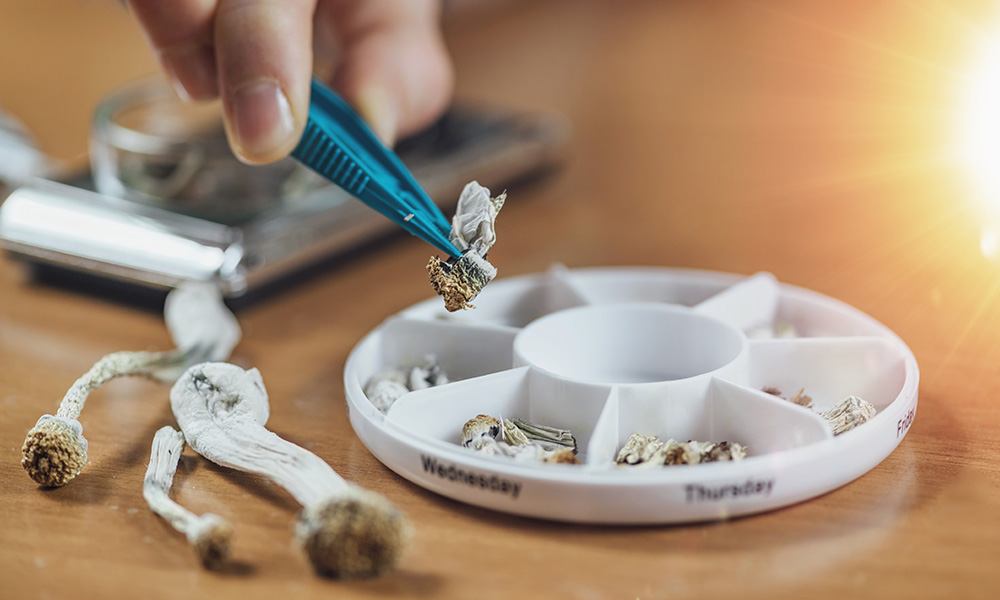
A new UBCO study finds people are using small doses of psychedelics not for recreational purposes, but to combat anxiety and depression.
An international study led by UBC Okanagan researchers suggests repeated use of small doses of psychedelics such as psilocybin or LSD can be a valuable tool for those struggling with anxiety and depression.
The study, recently published in Nature: Scientific Reports, demonstrated fewer symptoms of anxiety and depression, and greater feelings of wellbeing among individuals who reported consuming psychedelics in small quantities, or microdosing, compared to those who did not.
Microdosing involves regular self-administration of psychedelic substances in amounts small enough to not impair normal cognitive functioning.
Considering this is the largest psychedelic microdosing study published to date, the results are encouraging, says UBCO doctoral student and lead author Joseph Rootman.
“In total, we followed more than 8,500 people from 75 countries using an anonymous self-reporting system—about half were following a microdosing regimen and half were not,” Rootman explains. “In comparing microdosers and non-microdosers, there was a clear association between microdosing and fewer symptoms of depression, anxiety and stress—which is important given the high prevalence of these conditions and the substantial suffering they cause.”
The study is also the first to systematically examine the practice of stacking, or combining microdoses of psychedelics with other substances like niacin, lions mane mushrooms and cacao, which some believe work in conjunction to maximize benefit.
Rootman works with Dr. Zach Walsh, a psychology professor in UBCO’s Irving K. Barber Faculty of Arts and Social Sciences. Dr. Walsh says it’s an exciting time for research in this area.
“These findings highlight adults who are microdosing to treat their mental health conditions and enhance their wellbeing—rather than simply to get high,” says Dr. Walsh. “We have an epidemic of mental health problems, with existing treatments that don’t work for everyone. We need to follow the lead of patients who are taking these initiatives to improve their wellbeing and reduce suffering.”
Study co-author Kalin Harvey is the chief technology officer of Quantified Citizen, a mobile health research platform. He says this study highlights the potential of citizen science.
“The use of citizen science allows us to examine the effects of behaviours that are difficult to study in the lab due to regulatory challenges and stigma associated with the now discredited ‘war on drugs.’”
According to the Canadian Mental Health Association, one in five Canadians personally experience a mental health problem or illness each year. This is one of the many reasons Dr. Walsh says conducting innovative psychological research is imperative.
“These cross-sectional findings are promising and highlight the need for further investigation to better determine the impacts of factors like dosage and stacking,” explains Dr. Walsh.
“While the data is growing to support the use of psychedelics like psilocybin in large doses to treat depression and addiction—our data also helps to expand our understanding of how psychedelics may also help in smaller doses.”